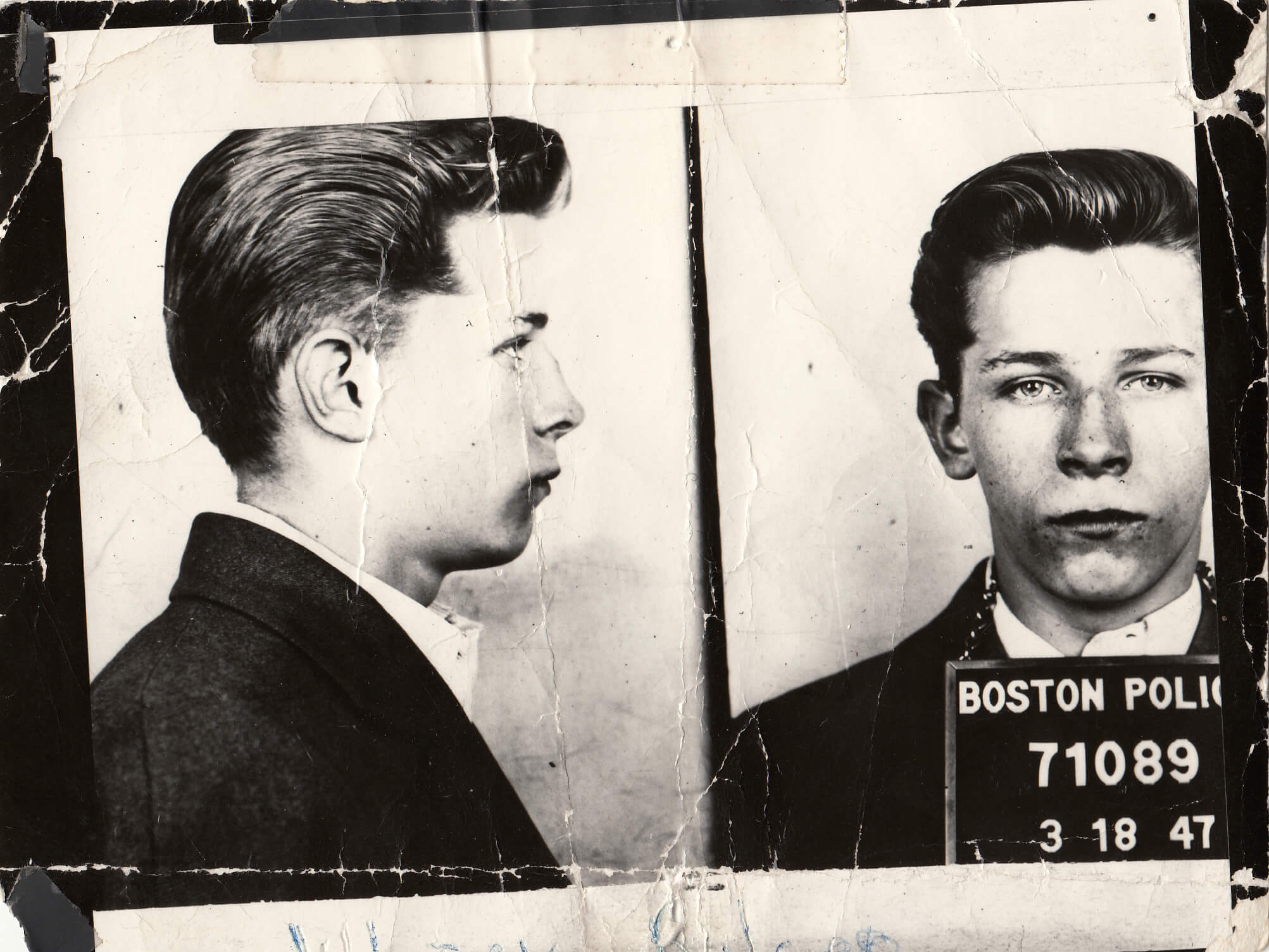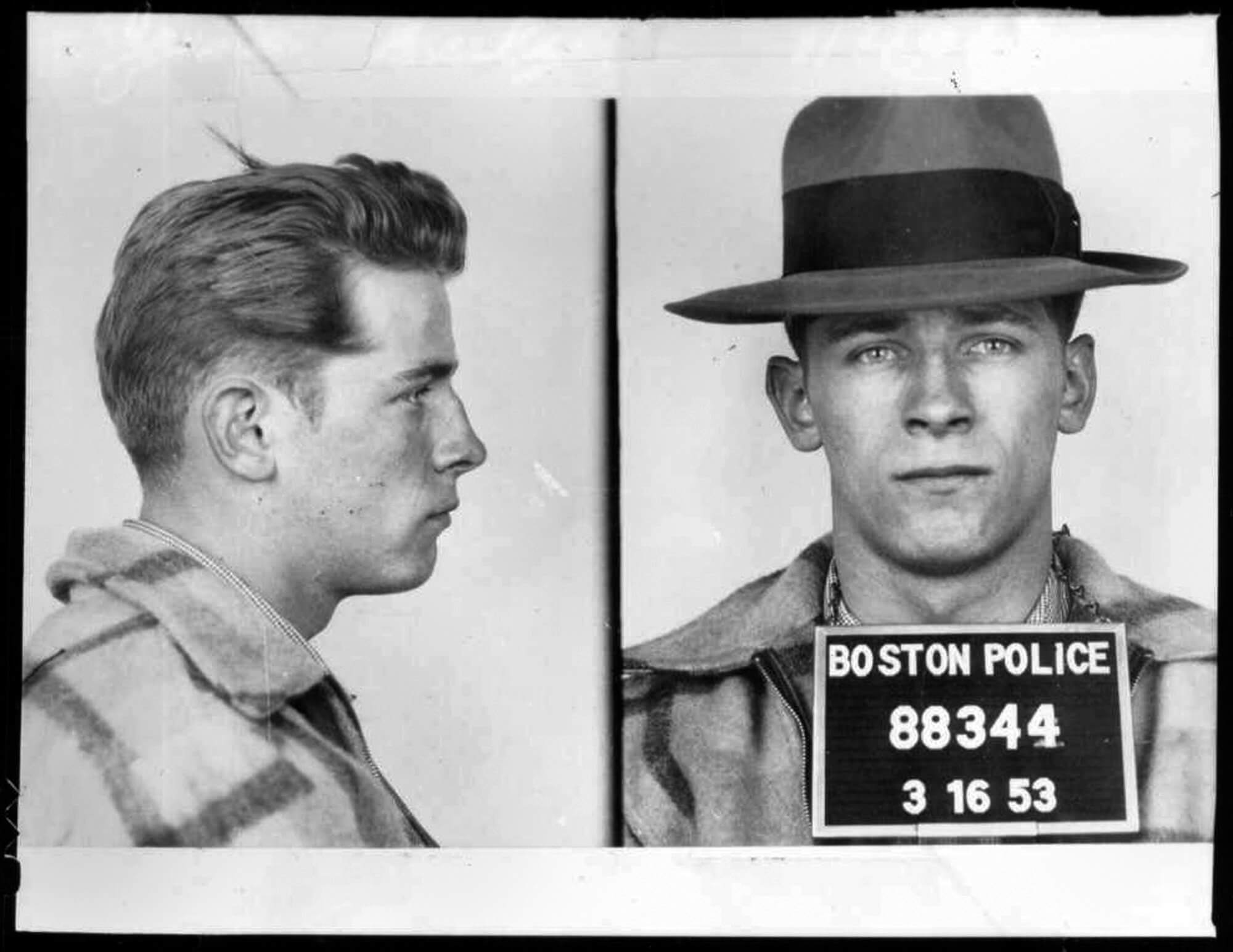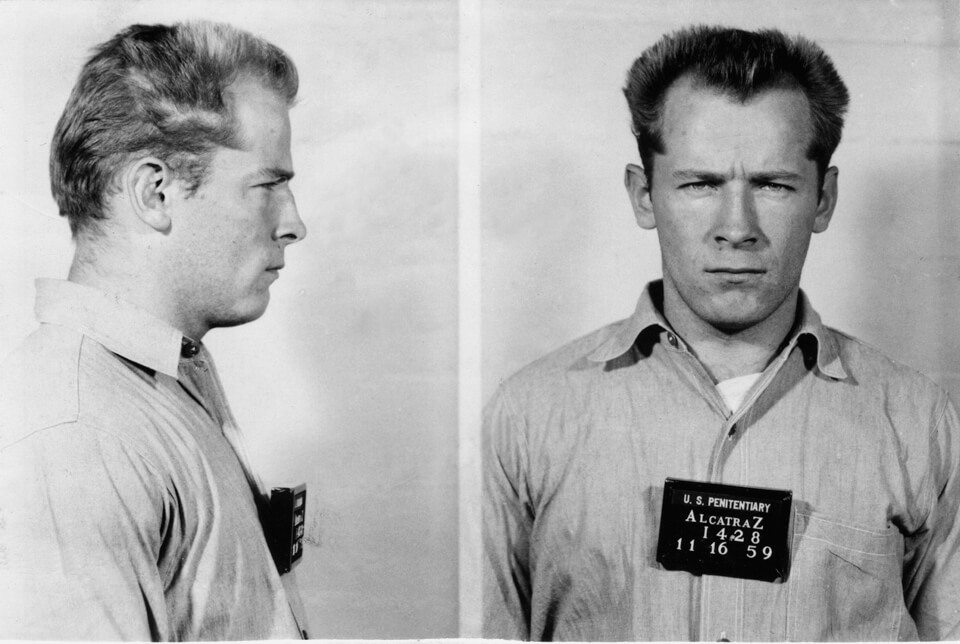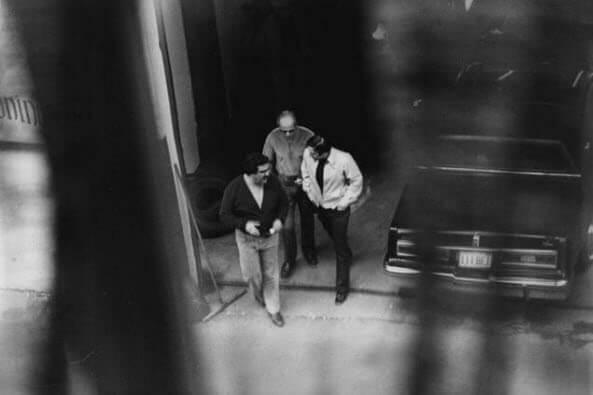Whitey Bulger and the Lancaster Street Garage
The Lancaster Street Garage, located in the West End, was the “business office” of James “Whitey” Bulger and the Winter Hill Gang in 1979 and 1980, until they learned that State Police bugged the building.
The Lancaster Street Garage, a parking garage at 131 Lancaster Street (near North Station and the present-day TD Garden), was once known as the “West End headquarters” of “Whitey” Bulger and the Winter Hill Gang, an Irish organized crime ring in Boston. In the early 1970s, James “Whitey” Bulger, after serving time for multiple bank robberies, became an enforcer for the Winter Hill Gang, based in Somerville and led by Howie Winter. Bulger became a top FBI informant in 1975, but he manipulated that relationship with federal authorities to escape indictment for fixing horse races, which Winter and other members of the gang were convicted for in 1979. Following those convictions, Bulger rose to leadership of the Winter Hill Gang with his “top lieutenant,” Stephen Flemmi, and during this time the gang was responsible for multiple incidents of racketeering and murder. Since 1979, the Winter Hill Gang had extorted bookmakers (“bookies”) by demanding monthly payments as a condition of staying in business, which was backed up by threats of violence. The payments were often delivered to Bulger and Flemmi at the Lancaster Street Garage, leading the Massachusetts State Police to bug the building in 1980.
George Kaufman, who owned the garage officially called “Lancaster Foreign Motors,” was a “close associate” of Whitey Bulger and Stephen Flemmi. The garage was a site of normal business until the afternoons, when Bulger and Flemmi would meet with bookies and mobsters. During the 1980s, Flemmi, in order to minimize law enforcement attention to himself, had Kaufman receive the payments from bookies. With Kaufman’s involvement, the Lancaster Street Garage became the “business office” of the Winter Hill Gang, according to the Globe, in which “reputed leaders from crime gangs of every ethnic background” came to speak with Bulger and Flemmi. In November 1980, State Police discovered that John Morris, an FBI supervisor, errantly told a Boston police officer that Bulger and his gang knew that the Lancaster Street Garage was bugged. Bulger and Flemmi stopped using the garage for a time after learning that the meeting place was compromised. But the surveillance effort by Boston police had been extensive, even though it failed: police took photos and videos of suspects entering the garage, while camped out at a Merrimac Street “flophouse” (cheap hotel) across from the building. Robert Long, the State Police detective who led the surveillance effort, commented in 1995 that when he saw Bulger from across the street, “he was always sucking in his stomach, checking out his shoulders, making sure he looked good.” Bulger and Flemmi were able to escape other bugging attempts as well; after police bugged another frequent spot for the gangsters, the payphones by a Howard Johnson’s restaurant in Dorchester, they eventually stopped going there. After Bulger and Flemmi were “chased out of the Lancaster Street Garage,” in the words of the Globe, they ran their illegal operations from South Boston.
In January 1995, Kaufman faced multiple federal counts of extortion, money laundering, and racketeering for his ongoing involvement as a liaison for the Winter Hill Gang between 1979 and 1992. Whitey Bulger faced federal indictment for racketeering that same month, and in January 1995 he fled Boston to escape law enforcement. Kaufman died a few months later, on April 17, 1995, after dealing with ongoing illnesses. In March 2006, when Bulger had still not been caught, Boston police released a 1980 surveillance video of Bulger in the Lancaster Street Garage, in order to help more people potentially spot him as a much older man. The FBI caught Bulger in Santa Monica, California with his girlfriend, Catherine Greig, in 2011; in 2013, Bulger was convicted of 31 counts, including 11 murders. Bulger was murdered in prison in 2018.
Article by Adam Tomasi
Source: Britannica; Flickr/IWalked Audio Tours; BestRide; New York Times; ProQuest/Boston Globe (“Police hunt reputed crime bosses,” January 7, 1995, page 1; “Agents gave Bulger starring role in Mafia case – but was it real?,” July 20, 1998, A1; “Ex-Prosecutor’s Loyalties in Question,” February 3, 2000, B1; “Investigators Hope Strut, Gestures of Whitey Bulger Lead to Arrest,” March 8, 2006, B1; “Key figure in probe of N.E. underworld dies after illness,” April 17, 1995, 17; “Law Enforcement Officials Lament About An Elusive Foe,” September 20, 1988, page 1; “Whitey eludes snares set by troopers, DEA,” September 20, 1988, page 18)












